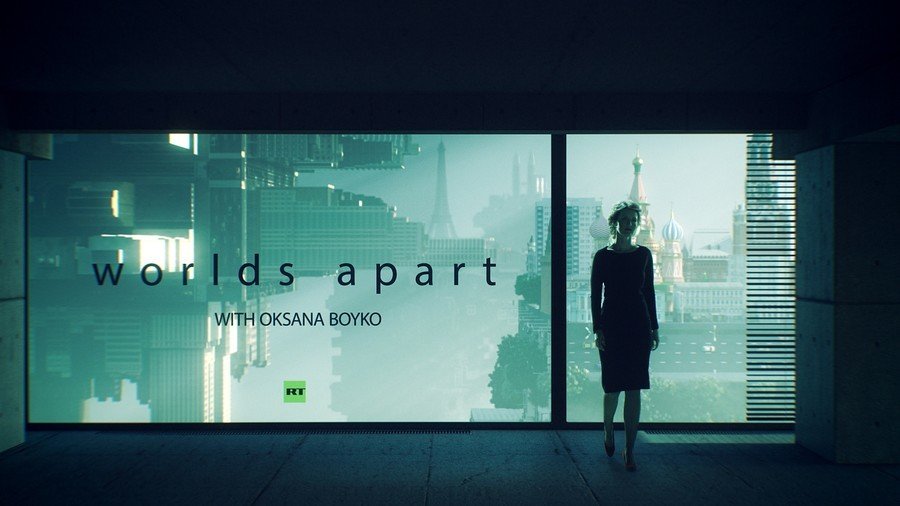Worlds Apart

Worlds Apart is a fast-paced, in-depth discussion on the most pressing issues facing the world today.It strives to depart from the traditional Q&A form of interview in favor of a more emotive and engaging conversation. Host Oksana Boyko is not afraid to ask the hard questions that others avoid, with the aim of promoting intelligent public debate.
Identity of against? Guy Mettan, Swiss politician
To many in the West, Russia is a country to be scorned, loathed, and above all, feared. For today’s guest, this isn’t a recent phenomenon, but something that Western elites have cultivated and weaponized since the Great Schism. Why? To discuss this, Oksana is joined by Guy Mettan, a Swiss politician and author of ‘Creating Russophobia: From the Great Religious Schism to Anti-Putin Hysteria’.
Great crossroads? Pravesh Gupta, Associate Fellow at the Vivekananda International Foundation in New Delhi
For centuries, Central Asia has been both a coveted prize and a battleground for great power rivalries, serving as a graveyard of empires yet struggling to develop and prosper on its own terms. As the focal point in the struggle for Eurasia moved westwards, to Ukraine, with devastating consequences for the latter, how do the Central Asian nations manage being at the crossroads of global politics? To discuss this, Oksana is joined by Pravesh Gupta, Associate Fellow at the Vivekananda International Foundation in New Delhi. This interview was held on the sidelines of the Fourth Central Asian Conference of the Valdai Discussion Club in Ufa.
Ruling, not governing? Ian Proud, former British diplomat
One dictum that studying history teaches you is that everything works until it doesn’t. The brighter the golden age, the darker its aftermath, especially when one tries to avert the inevitable. With the latest elections in the West more and more vividly demonstrating voters’ disenchantment with the mandated course, what lies ahead for the West and for the rest? To discuss this, Oksana is joined by Ian Proud, a former British diplomat and author of ‘A Misfit in Moscow: How British Diplomacy Failed in Russia’, 2014-2019.
No end in fight? Ramzy Ezzeldin Ramzy, former UN assistant secretary general on Syria
More than a decade ago, a deadly battle erupted in Syria. Barbarity reigned supreme, killing became a spectacle and the international community was fiercely divided. It seemed like the worst war ever. But today, the Syrian state isn’t just standing, it’s recovering, rebuilding ties with former adversaries, and looking to the future. Is such a scenario likely for the conflict in Ukraine? To discuss this, Oksana is joined by Ramzy Ezzeldin Ramzy, Ambassador of Egypt (Ret.), former ambassador of Egypt to Germany, Austria, Brazil and former assistant secretary general of the United Nations on Syria.
Technology of sovereignty? Warwick Powell, adjunct professor at Queensland University of Technology
Most Western intellectuals would agree that technology is changing the world in which we live, with one caveat: it’s somehow supposed to keep in place the old hierarchy, with the West dictating and taking advantage of most economic and political decisions. How far will it to go to fight the inevitable? To discuss this, Oksana is joined by Warwick Powell, an Adjunct Professor at Queensland University of Technology.
Peaceful break-up? Milorad Dodik, President of Republika Srpska
In political science, the term Balkanization is used to describe the process of the often-deliberate fragmentation of a country, or territory, into smaller and frequently hostile parts. When it comes to the Balkans today, how solid are the current borders? To discuss this, Oksana is joined by Milorad Dodik, President of Republika Srpska.